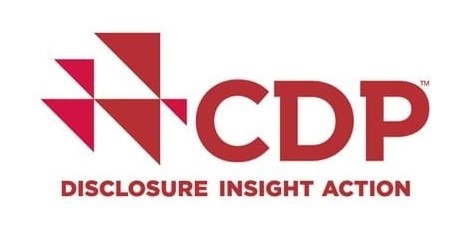19/03/2024
19/03/2024

Kuwait City, Mar 19: National Bank of Kuwait (NBK) has received a score of "C" for the second consecutive year in the categories of Climate Change and Forests 2023, as announced by CDP (formerly known as the Carbon Disclosure Project), a globally recognized non-profit organization overseeing the leading environmental disclosure platform.
NBK stands out as the sole bank in Kuwait to be rated by CDP, establishing its position among the leading financial institutions in the GCC engaged in the initiative.
A "C" score from CDP reflects the depth of understanding regarding various aspects such as climate change and forestry. It also indicates an in-depth analysis of how businesses approach important environmental topics, integrating them with their business methodology. This entails a holistic understanding of the outcomes of these practices and their effects on communities and ecosystems.
This rating aligns with NBK’s roadmap aimed at strengthening transparency regarding the environmental impacts of the bank’s operations and its endeavors to mitigate emissions through CDP. The bank initiated its disclosures in 2021, signaling its commitment to transparency and emissions reduction.
Moreover, this accomplishment underscores NBK’s leading position among the top-performing organizations in sustainable practices, highlighting its dedication to transparency and responsible environmental leadership.
NBK's participation in the CDP strengthens its role in fulfilling the growing demand for environmental transparency set by financial institutions, clients, and regulators.
NBK has consistently provided an annual evaluation of its environmental performance, encompassing metrics such as energy and water consumption, waste management, resource utilization, and greenhouse gas emissions. This information is detailed in the bank's annual sustainability reports, offering transparency regarding its environmental impact and operational carbon footprint.
For the second consecutive year, NBK sustains its robust ratings in the CDP, showcasing our dedication to advancing transparency regarding the environmental impacts of our operations. This commitment aligns with our efforts to facilitate the shift towards a sustainable, low-carbon economy and to contribute to realizing Kuwait's sustainability vision.
NBK has initiated crucial efforts to integrate ESG standards and climate risk considerations into its operational framework, acknowledging their pivotal role in fostering sustainable growth. Furthermore, the bank actively collaborates with its customers to advocate for the adoption of sustainable practices, facilitating effective communication to catalyze collective efforts towards sustainability.
Furthermore, the bank is actively exploring innovative research and development technologies to magnify our reliance on renewable energy and transition all its facilities into eco-friendly structures. Additionally, it seeks to quantify and assess the greenhouse gas emissions linked to its portfolio by aligning with international accounting frameworks and utilizing greenhouse gas assessment tools.
As a leading regional financial institution, the bank consistently seeks diverse approaches to evaluating risks associated with climate change, alongside managing its environmental impact operationally. This encompasses interactions with both customers and suppliers.
NBK's efforts align with its commitment to becoming carbon neutral by 2060, with interim targets to decrease total operational emissions by 25% by 2025. Additionally, the bank aims to grow its portfolio of sustainable assets to approximately US$10 billion by 2030.
It further pledges to play a responsible role in supporting global endeavors to mitigate carbon emissions and address climate change risks by establishing clear, measurable, and accountable objectives. This commitment underscores NBK's determination to integrate climate-related considerations into its future business strategies.
CDP collaborates with over 740 financial institutions worldwide, overseeing assets exceeding US$136 trillion. Its objective is to encourage companies to disclose their environmental impacts, diminish greenhouse gas emissions, conserve water resources, and safeguard forests. In 2023, approximately 24,000 companies submitted their disclosures through this initiative.


